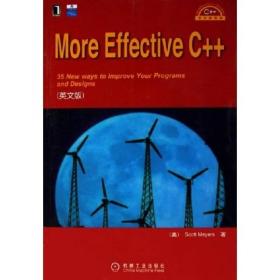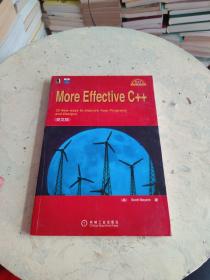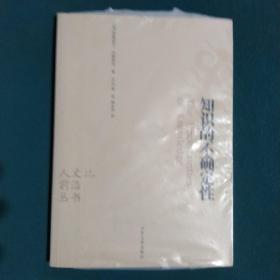
More Effective C++
¥ 108 九品
仅1件
作者迈耶斯
出版社机械工业出版社
出版时间2006-04
版次1
装帧平装
货号A366
上书时间2023-05-10
- 在售商品 暂无
- 平均发货时间 5小时
- 好评率 暂无
- 最新上架
商品详情
- 品相描述:九品
图书标准信息
- 作者 迈耶斯
- 出版社 机械工业出版社
- 出版时间 2006-04
- 版次 1
- ISBN 9787111188308
- 定价 39.00元
- 装帧 平装
- 开本 其他
- 纸张 胶版纸
- 页数 318页
- 【内容简介】
-
本书主要内容一些经过验证的用来改善程序效率的方法,包括检验c++语言特性所带来的时间和空间上的成本。全面地描述了C++专家所使用的高级技术,包括placement new、 virtual constructors、smart pointers、reference counting、proxy classes和double-disoatching等以实例说明异常处理带给C++类和函数的冲击。介绍新的语言特性,成员模板、标准模板库等。如果你的编译器不支持这些特性,本书还介绍了如何不利用它们完成工作。
作者简介:
迈耶斯,拥有布朗大学计算机科学博士学位,是世界上最著名的C++软件开发权威之一。他的“EffectiveC++两卷本”,开辟了技术图书写作新风格。他曾担任《C++Report》杂志的专栏专作家,经常为《C/C++Users Journal》和《Dr.Dobb's Jornal》撰稿。 - 【作者简介】
- Scott Meyers 拥有布朗大学计算机科学博士学位,是世界上最著名的C++软件开发权威之一。他的“Effective C++两卷本”(《Effective C++》和《More Effective C++》),开辟了技术图书写作的新风格。他曾担任《C++Report》杂志的专栏作家,经常为《C/C++Users Journal》和《Dr.Dobb's Journal》撰稿。
- 【目录】
-
Acknowledgments
Introduction
Basics
Item 1: Distinguish between pointers and references.
Item 2: Prefer C++-style casts.
Item 3: Never treat arrays polymorphically.
Item 4: Avoid gratuitous default constructor's.
Operators
Item 5: Be wary of user-defined conversion functions.
Item 6: Distinguish between prefix and postfix forms of
increment and decrement operators.
Item 7: Never overload &&, ] ], or ,.
Item 8: Understand the different meanings of new
and delete.
Exceptions
Item 9: Use destructors to prevent resource leaks.
Item I0: Prevent resource leaks in constructors.
Item I I: Prevent exceptions from leaving destructors.
Item 12: Understand how throwing an exception differs from
passing a parameter or calling a virtual function.
Item 13: Catch exceptions by reference.
Item 14: Use exception specifications judiciously.
Item 15: Understand the costs of exception handling.
Efficiency
Item 16: Remember the 80-20 rule.
Item 17: Consider using lazy evaluation.
Item 18: Amortize the cost of expected computations.
Item 19: Understand the origin of temporary objects.
Item 20: Facilitate the return value optimization.
Item 21: Overload to avoid implicit type conversions.
Item 22: Consider using op-- instead of stand-alone op.
Item 23: Consider alternative libraries.
Item 24: Understand the costs of virtual functions, multiple
inheritance, virtual base classes, and RTTI.
Techniques
Item 25: Virtualizing constructors and non-member functions.
Item 26: Limiting the number of objects of a class.
Item 27: Requiring or prohibiting heap-based objects.
Item 28: Smart pointers.
Item 29: Reference counting.
Item 30: Proxy classes.
Item 31: Making functions virtual with respect to more than one object.
Miscellany
Item 32: Program in the future tense.
Item 33: Make non-leaf classes abstract.
Item 34: Understand how to combine C++ and C in the same program.
Item 35: Familiarize yourself with the language standard.
Recommended Reading
An auto__ptr Implementation
General Index
Index of Example Classes, Functions, and Templates
相关推荐
-

More Effective C++
九品北京
¥ 73.91
-

More Effective C++
九五品廊坊
¥ 78.73
-

More Effective C++
九五品北京
¥ 75.42
-

More Effective C++
九品北京
¥ 73.24
-

More Effective C++
九品北京
¥ 73.19
-

More Effective C++
八五品北京
¥ 75.60
-

More Effective C++
全新汕头
¥ 200.00
-

More Effective C++
九品邯郸
¥ 95.00
-

More Effective C++
全新广州
¥ 187.00
-

More Effective C++
八五品广州
¥ 50.00
— 没有更多了 —














以下为对购买帮助不大的评价